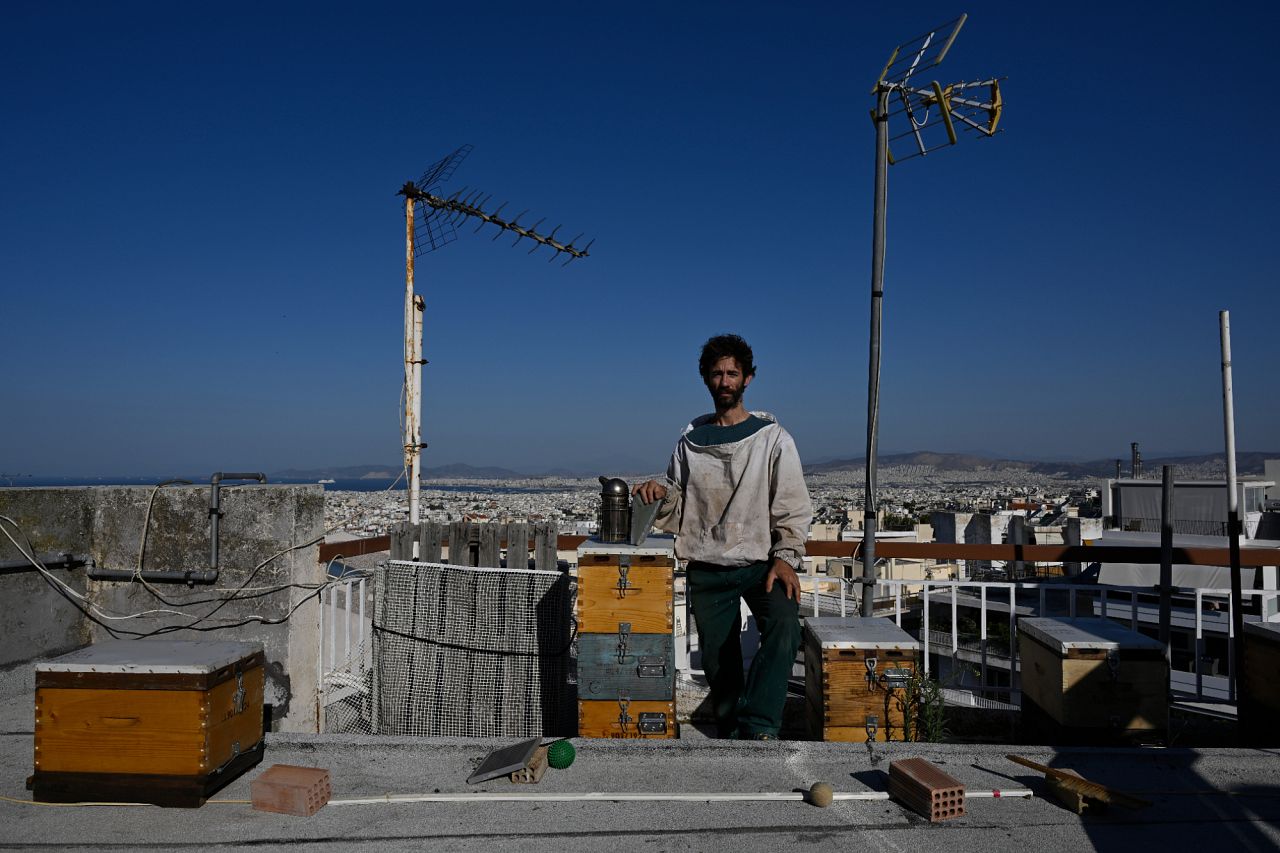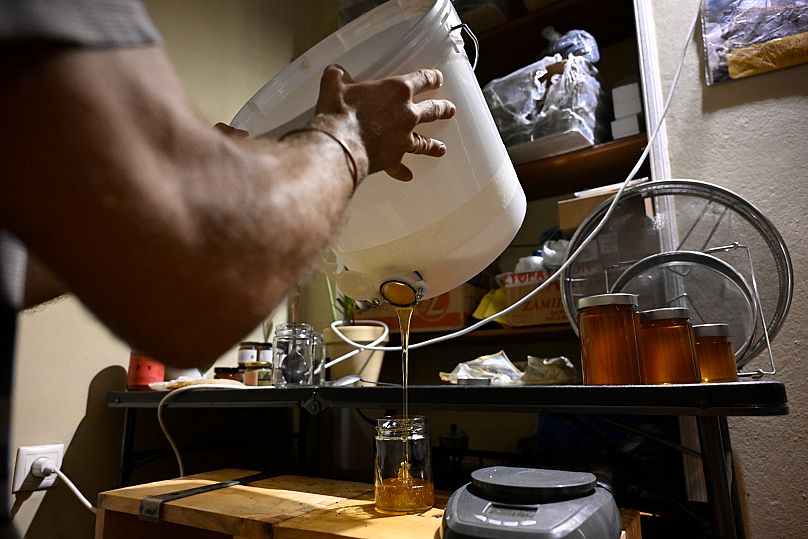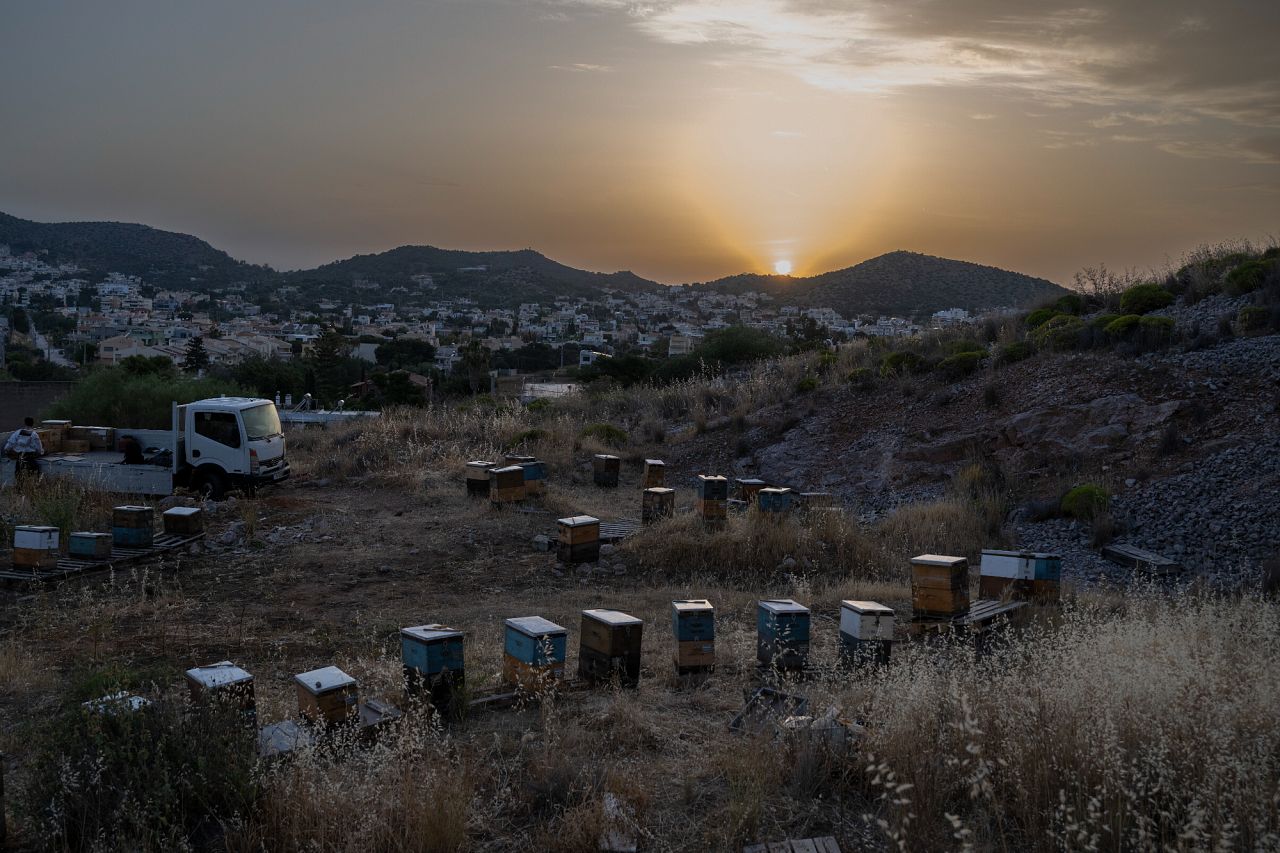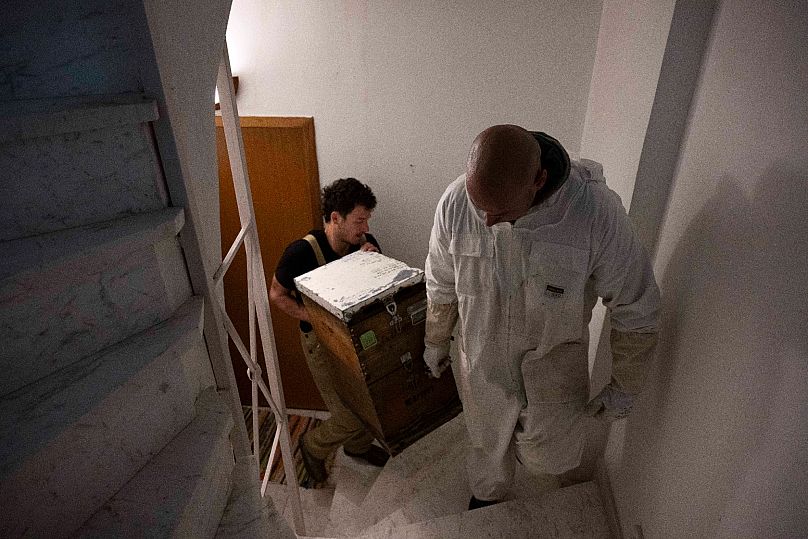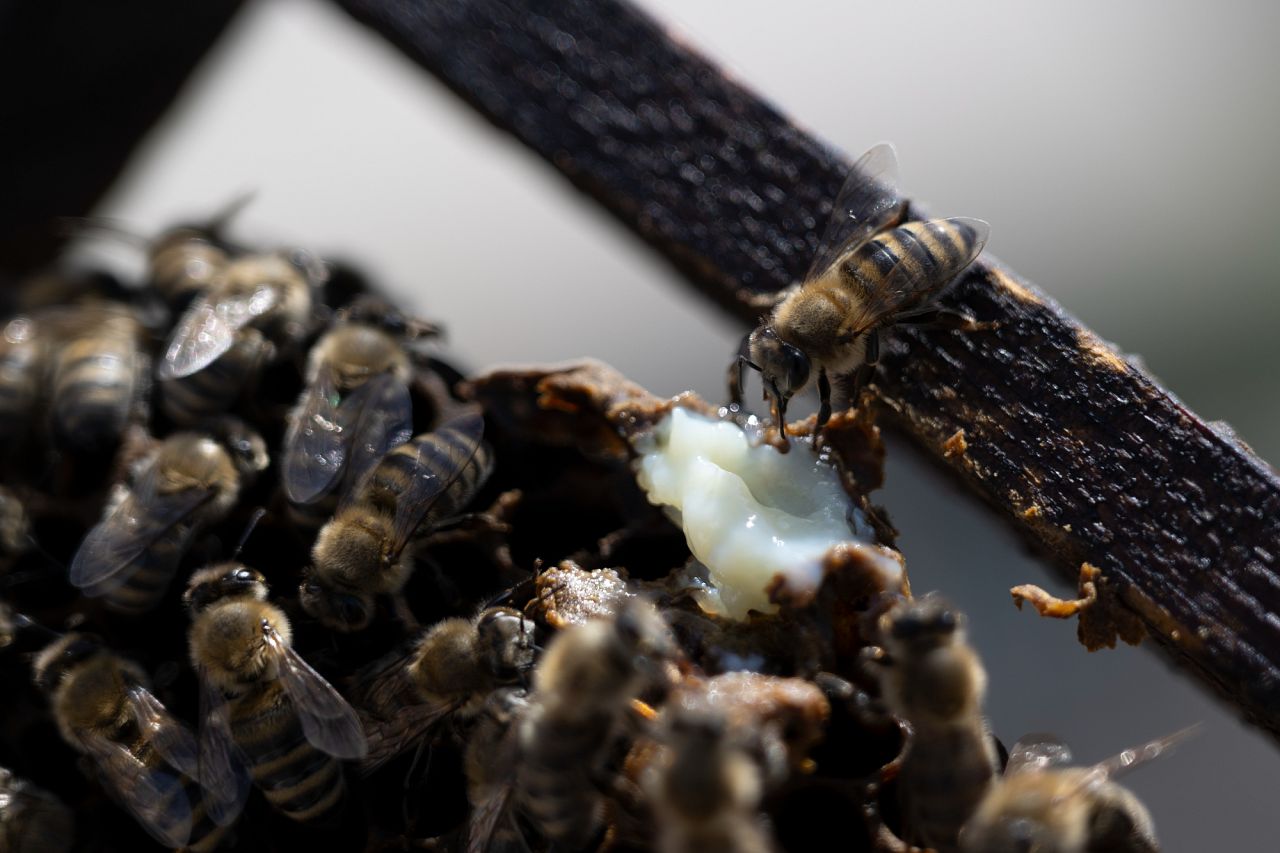Athens embraces urban beekeeping as rooftop hives bring honey production to the city
Urban beekeeping is neither new around the world nor in Athens. Decades ago, Greek families brought hives with them when they moved from the countryside.
Nikos Chatzilias spends his days tending to buzzing bee colonies with a unique view out over the rooftops of Greece’s capital.
 ADVERTISEMENT
ADVERTISEMENT
 ADVERTISEMENT
ADVERTISEMENT
He is among the dozens of Athenians who have embraced urban beekeeping to support local ecosystems, reconnect with nature and enjoy honey flavoured by each neighbourhood’s local plants and flowers.
Chatzilias, 37, was a heavy honey consumer, eating it with bread and tea for breakfast and using it to replace sugar everywhere else, including in cookies and other sweets.
He grew dissatisfied with run-of-the-mill products and decided to make his own, signing up for beekeeping classes in 2020 and becoming a professional shortly thereafter.
“I saw that it worked really well for the hives. For us, the daily contact with the bees brought us a lot of joy, and that’s why we continued,” he said.
Beehives with a view of the Parthenon
This summer, Chatzilias cared for 30 hives he placed on seven Athens-area rooftops, including one with a view of the Parthenon.
The approximately 1.2 million bees in his hives produced 500 kilograms of honey, roughly the weight of a large brown bear. Each batch was packaged and named for its neighbourhood of origin.
Varying tastes of Athens honey, he explained, come from the proportion of eucalyptus, acacia and bitter orange present in different areas of the city, plus other flora. On the southern coast, for example, pine trees impart a forest-like note.
Urban beekeeping is neither new around the world nor in Athens. Decades ago, Greek families brought hives with them when they moved from the countryside. But Chatzilias sees today’s beekeeping as more intentional and focused on environmental implications, which resonates across society.
One of Chatzilias' recent recruits, Aggelina Chatzistavrou, first fell in love with bees while she was a university student.
“I really liked the idea of having my own,” she said on her rooftop overlooking the Acropolis. “If everyone could have a hive in an open space at their home, I believe it would change our environment in a big way.”
Athens is an ideal setting for beekeeping
Despite growing interest, would-be beekeepers can be stopped by objections from fellow residents of their apartment buildings. Urban beekeeping entails hauling heavy hives up staircases to the rooftops for the spring and down again before winter sets in.
“There are fears along the lines of, ‘They might sting me, my children, my dog. What if I’m allergic?” Chatzilias said. “In general, for city people - because they have been cut off from nature for so many years - even something natural that happens (…) can provoke fear.”
Athens’ constant bloom cycles of different pollinator-friendly plants make it an ideal setting to experiment with leaving the bees atop the rooftops all year round, which he is doing for the first time this year, he said.
“Even with a chaotic urban environment that we’ve created, nature - or whatever remains of it in the city - still responds and can give life," Chatzilias said.











